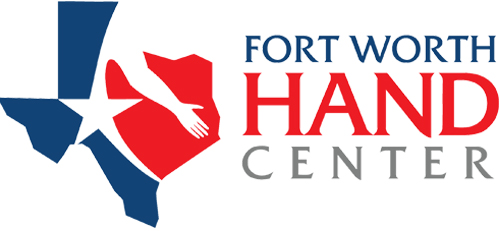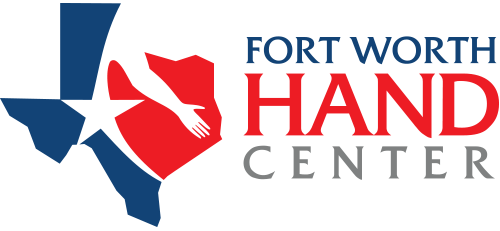You’ve noticed that your elbow has been hurting ever since you painted those three bedrooms a few weeks ago. The pain has gradually worsened. After a trip to the doctor, you learn that you have tennis elbow. You can’t help but question the diagnosis. After all, can you have this condition if you don’t play tennis? Surprising as this may sound, you don’t have to play tennis to get tennis elbow.
Tennis elbow is an overuse injury that can affect anyone. It is brought on by repeated or excessive hand gripping or wrist extension. The condition will get worse if left untreated, limiting your ability to perform daily tasks.
Your doctor will accurately diagnose your condition, but common symptoms can include:
- Pain or burning on the outer part of the elbow
- Forearm and wrist pain
- Weakened grip strength
- Swelling and tenderness
- Occasional pain at night
Why Is It Called Tennis Elbow? What Are the Causes?
Lateral epicondylitis, also known as tennis elbow, is characterized by inflammation or small tears in the tendons that join the forearm muscles on the outside of the elbow. Because your forearm is largely responsible for the overall stability of your hand, wrist, and fingers, any injury to the site can be extremely painful. As for the term “tennis elbow,” it is used in a general sense since tennis players are constantly gripping their racket tightly and are considered most at-risk for the injury. The same can be said for those who play racquetball, squash, and badminton.
Ironically, recent studies indicate that tennis players only make up 10% of the patients who experience this overuse injury. The larger patient crowd is everyday people just like you who do repetitive lifting, turning of the wrist, gripping, or similar movements, including avid computer users, painters, mechanics, cooks, plumbers, and carpenters.

Just a few activities that involve repetitive arm motion and play a part in tennis elbow include:
- Playing a musical instrument
- Using scissors
- Gardening
- Computer use
- Cooking
- Cutting tough food
- Sports that involve a lot of throwing (baseball, discus, etc.)
- A direct blow to your elbow
- Cutting down trees
- Working on an assembly line
- Home repair projects
- Other manual work
How Long Does It Take to Recover?
The good news is that tennis elbow can be successfully treated. Many people, including athletes and workers whose jobs depend on the repetitive movements that led to the injury, can make a full recovery. With that said, the recovery time can take anywhere from six to 12 months, depending on the severity of your injury. In many cases, this does require you stop activities that strain your affected muscles and tendons.
What if your job requires use of your arms to do manual tasks, such as lifting? You may need to change the way you do these types of movements to place less strain on your arm, or avoid altogether, until your condition improves.
When you seek medical advice, your doctor will perform a thorough examination of your elbow, forearm, wrist, and hands while asking you a series of questions to determine if your symptoms are related to daily activities or a specific injury. In some cases, your doctor may order additional tests such as X-ray, CT scan, musculoskeletal ultrasound, MRI, or other lab tests to check for any other potential abnormalities. From there, treatment is typically conservative at first to see how the patient responds.

What Are Common Treatment Options?
1. Medications
Non-steroidal anti-inflammatory drugs (NSAIDs) and painkillers, such as ibuprofen or naproxen, keep inflammation low and reduce symptoms. In addition to oral meds, NSAIDs can be topical, available in creams and gels. The benefit of topical NSAIDs is that they reduce pain and inflammation without side effects, such as diarrhea or nausea. Your doctor may recommend you apply topicals directly to your elbow and forearm.
2. Rest
Good old-fashioned rest, including limiting or stopping activities that make your symptoms worse, has been known to be an effective treatment option. Using ice packs also helps reduce swelling.
3. Steroid injections
Steroid injections directly into the painful area may provide short-term relief. If helpful for your pain, your doctor may recommend up to three injections in the same area, with at least a three to six-month gap between injections. Steroids are not a long-term solution.
3. Alternative therapies
Range-of-motion exercises/physical therapy, chiropractic care and sometimes acupuncture are natural, non-invasive approaches to relieving nerve interference, reducing pain, and improving physical function.
4. Surgery
In cases where tennis elbow causes severe and persistent pain, or symptoms do not significantly improve within six to 12 months, your doctor may recommend surgery. Orthopedic surgery to repair damage from tennis elbow may include tendon reconstruction, advanced arthroscopic techniques, or open tendon repair. In some cases, a surgeon will remove a tendon’s damaged area to relieve painful symptoms.
Get Back to Active Weekends with Fort Worth Hand Center
Do you miss participating in weekend activities due to wrist, arm, or hand pain? The best orthopedic surgeons in Fort Worth are at Fort Worth Hand Center. We incorporate the latest surgical techniques using minimally invasive approaches to reduce pain and allow for faster recovery. Our expert physicians provide treatment options for chronic conditions, trauma, and injuries to get you active again. To schedule an appointment, call 817-877-3277 or complete the form below. Weekend warriors are welcome at Fort Worth Hand Center!
Fort Worth Hand Center serves the DFW area including Southlake, Trophy Club, Watauga, Westlake, Westover Hills, Westworth Village, White Settlement, Arlington, Azle, Bedford, Benbrook, Blue Mound, Burleson, Colleyville, Crowley, Dallas, Dalworthington Gardens, Edgecliff Village, Euless, Everman, Flower Mound, Forest Hill, Fort Worth, Grand Prairie, Grapevine, Haltom City, Haslet, Hurst, Keller, Kennedale, Lakeside, Lake Worth, Mansfield, Newark, North Richland Hills, Pantego, Pelican Bay, Richland Hills, River Oaks, Saginaw, Sansom Park, and all of North Texas.
Prior to starting any new treatment or if you have questions regarding a medical condition, always seek the advice of your doctor or other qualified health provider. This information is not a substitute for professional medical advice.



